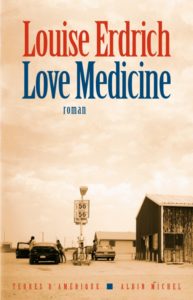Ojibwe writer and bookstore owner Louise Erdrich knows the power of storytelling.
When she first went to college, she was so painfully shy that people assumed she was stoned, so she became a writer in order to develop a personality. That personality has gone on to win national awards, and she has become one of the most powerful voices in American aboriginal fiction.
“I’m a mixed Ojibwe,” Erdrich once said. “I’m a citizen of two nations, and that informs everything I think about.”
Like her own history, Erdrich’s novels contain a rich cast of voices that speak to the interconnectedness of families, communities, and the stories we tell to define them.
Erdrich also blends literary traditions, having been described as a descendent of William Faulkner for her sweeping and vividly imagined fictional landscapes. She is also an inheritor of the tradition of magic realism and of aboriginal myth-making. In The Antelope Wife, for example, a soldier named Scranton Roy nurses a rescued child at his own breast.
In addition to being a novelist, Erdrich is a poet, and her loving attention to language shows through in every sentence. She once described the moment in her childhood when she first discovered the power of words: “The Ojibwe say that each word has a spirit. [The teacher] drew eyelashes on the o’s in look, and irises in the middle of the o’s, and suddenly look contained the act of looking. I had a flash of pure joy.”
This joy has continued to sustain her throughout her writing life.
“I approach the work as though, in truth, I’m nothing and the words are everything,” she once said. “Then I write to save my life.”
Louise Erdrich must-read:
Love Medicine
(Lansdowne Library code: PS 3555 R285 L68)

